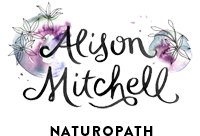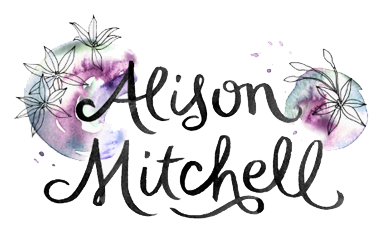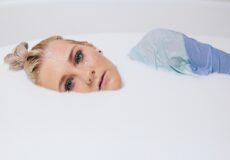Surviving the Teenage Years, Acne – Part 2
The next installment to my Surviving the Teenage Years trilogy for Western Sydney Mum’s Hub is about dealing with acne.
The teenage years can be a trying time for parents, but often it is just as hard for the teenagers themselves. A common issue that many teenagers face is their skin health, with acne being such a problem for some that it significantly affects their self-esteem.

Acne affects:
- 36% of 4-7 year olds
- 28-61% of 10-12 year olds
- 79-95% of 16-18 year olds!
- 12% of middle aged women and 3% of middle aged men
Why do teenagers get acne?
The hormonal fluctuations can get a bit out of control during the teen years, and the levels of the hormones testosterone (present in both males and females) and insulin (related to diet, genetics and activity levels), nutritional status, immunity and genetic tendencies can make acne more prevalent.
As the hormone testosterone rises it causes an increase in oil production in the skin, and this oil feeds the bacteria that live in the pores. When the bacteria in the pores grow rampant they irritate the skin and pimples can become very red and sore.
You can help keep the testosterone more in control by eating foods rich in zinc, which is an essential mineral in testosterone metabolism. This mineral is also essential for skin healing, mood, immunity and general reproductive health. Zinc is high in oysters, pumpkin seeds and sunflower seeds wheatgerm, shellfish and fish, red meat, sesame seeds, pepitas, and almonds. Also important is keeping blood sugar levels stable by eating a low GI diet and exercising regularly.
If you are eating a lot of sugar, carbohydrates or refined foods then the hormone insulin becomes very high. This can then cause the testosterone to climb. It’s happening very frequently that teenagers are eating a lot more junk food, and this is making the problem worse.
Insulin resistance occurs when the body has been making a lot of insulin for a long time, and the cells begin to ignore it. As a result, you have a lot of insulin circulating around the body not doing what it’s meant to do, and it can cause other problems. High insulin causes high testosterone, which worsens acne in both boys and girls. In girls it can also contribute towards PCOS (polycystic ovarian syndrome), a condition that affects ovulation. Acne is a common problem with PCOS, alongside hirsuitism (excess hair growth in unwanted areas).
In addition to that, there’s less exercise and activity happening, and that worsens the problem as well. Exercise is one of the best ways to manage insulin resistance. 150 minutes of exercise a week can be very helpful for this.
- See Part 1 of navigating the teenage years for tips of a low GI diet which can help insulin resistance.
Minimising Acne
Diet
Healthy diet is the foundation for good skin.
DO:
- Eat a variety of fresh vegetables including green leafy foliage. Green, yellow, red and blue fruits and vegetables are high in antioxidant compounds.
- Fresh fruit – aim to consume at least three pieces every day. Raspberries, blueberries and strawberries are rich in antioxidants and protect your skin from free-radicals.
- High fibre foods such as whole grains and legumes are important and assist with eliminating any toxins as well as improving your digestion.
- Include good quality protein rich foods such as lean meat, fish, chicken, dairy and eggs, or if vegetarian beans, lentils, chickpeas and wholegrains. Protein is important as it contributes to your skin’s elasticity and firmness.
- Good fats are known as ‘moisturising foods’. Sources include avocado, nuts and seeds, fish, olive oil and flaxseed oil.
- Eat regularly – three meals per day with healthy snacks in between. Your food is your fuel, choose foods wisely and eat them in sensible amounts, your body and skin will look great.
DON’T
- Eat too much dairy. Many people find that eliminating dairy from their diet can reduce the severity of their acne. For some, choosing to include cheese and yoghurt may be tolerated, however it’s advisable to trial avoiding dairy completely first.
- Eat foods that you are intolerant to. Many people find that eliminating foods they are intolerant to can help with acne, likely because food intolerances worsen digestive health and subsequently inflammation and immune system can be affected.
- Eat processed food, which often contains hidden sugars and inflammatory oils.
- Eat too much sugar and sugar containing foods. Too much sugar can affect blood sugar level balance, and can also disrupt the balance of bacteria in the digestive system.
Topical Options
- Tea tree oil has antiseptic and antifungal properties and is a great skin disinfectant therefore limiting bacterial growth on the skin. To use, mix the oil (5-15% solution) in warm water and wash the affected areas. Make sure to thoroughly clean and dry the face washer between each use so that bacteria do not build up between washes. Alternatively, the face can be ‘splashed’ with the tea tree infused water straight from the bathroom sink. For best results, wash the affected areas 2-3 times daily.
- Witch Hazel water can be used as a toner daily, and this help tighten pores and reduce bacteria build up. This can be a bit smelly so is best applied before going to bed.
- Lavender essential oil can be dabbed directly onto spots. You can also try this with tea tree oil, but it can be a bit strong for some people, so you may need to dilute it.
- Some people find betonite clay masks effective. This needs to be applied daily for two weeks, then once or twice a week for 3 months afterwards. Due to the drawing nature of this, you may find that your skin will be red after washing off the mask, and acne may temporarily worsen in the first week before it improves.
Herbs and Supplements
- If the above suggestions don’t work, then you could see a practitioner who can guide you with herbal medicine and nutritional supplements.
- The most commonly prescribed herbs I use are Burdock, a cleansing herb which helps to clear the cystic type of acne, Echinacea for the immune system and to stimulate the lymphatics, and Phelledendron for it’s antimicrobial effect.
- I often will recommend Vitamin A, Omega 3 fatty acids and Zinc as nutritional supplements for their benefit to the skin healing and immune system.
Consult your health practitioner if you would like further advice on managing acne.











Pingback: What's causing your acne? • Alison Mitchell Naturopath | Alison Mitchell Naturopath
Pingback: Surviving the Teenage Years - Part 1 • Alison Mitchell Naturopath | Alison Mitchell Naturopath